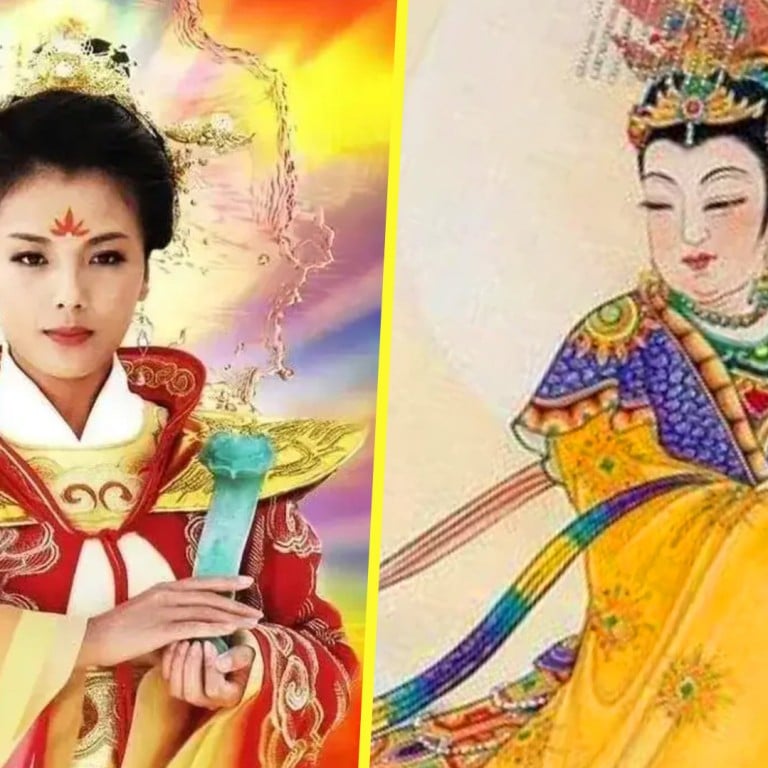
Profile | Why China actress is worshipped as sea goddess Mazu in China, many believe Liu Tao is living protector of seafarers
- 10th century woman, predicts weather, saves from disasters, becomes deity
- Actress plays legend on TV, many locals insist she is real Mazu
Ask people from Fujian province in southeastern China who their favourite celebrity is, it is almost certain the answer will be Liu Tao.
The 45-year-old actress is seen in Fujian as a living Mazu, the sea deity worshipped in the coastal province, after she played her in the eponymously titled 2012 Chinese television drama.
Legend has it that Mazu is a young woman who lived in the area in the 10th century. She could predict the weather and protect fishermen from disasters.
She is said to have died trying to rescue people from shipwrecks, then ascended to heaven and became a deity.
Fujian people’s reverence for Mazu is legendary. There are many taboos when it comes to worshipping the deity at temples, such as not exposing skin, not commenting on images and not looking around while kneeling before her.

Mazu is so respected that many police stations in the province have named their mediation rooms after her because they believe Fujian people do not lie in front of Mazu.
Liu, who made her acting debut in 2000, had been known as the “nation’s daughter-in-law” thanks to the idealised wives she played in multiple television dramas.
She successfully moved on from that typecasting in the 2016 hit drama Ode to Joy, by playing a former Wall Street executive.
However, in the minds of many in Fujian, Liu is actually Mazu. One person said her husband told her: “Mazu gives a fantastic performance in Ode to Joy.”
Some even hang photographs of Liu as the Mazu character in their homes, and worship her.
A Fujian resident said if Liu ever visited his hometown, she would be greeted with aunties holding incense and firecrackers, which are used to attract blessings from the gods.
Another said that even if Fujian people did not like Liu, they would never say anything negative about her, because it is wrong to speak ill of “Mazu”.

Before she played the role, Liu reportedly went to the Mazu temple to ask for the deity’s blessing.
She threw poe – a traditional Chinese divination method in which two small wooden pieces, known as jiao bei in Mandarin, are thrown on the floor to interpret the divine answer from the positions of the pieces – to ask for her permission. She allegedly received a positive response.
According to the director of the television series, Lu Qi, when they shot sea scenes, it was always sunny even when the weather forecast had predicted rain.
When Liu, who was born in central China’s Jiangxi province, appeared in a video to promote tourism in her hometown, it was reported that many Fujian people were confused, insisting that “Mazu is ours”.
Today, Mazu is still so widely revered across coastal areas in China and Southeast Asian countries with sizeable Chinese populations that she has an ID number to travel.
Some people buy plane and train tickets for her statues so they can travel to bless her worshippers far and wide.

